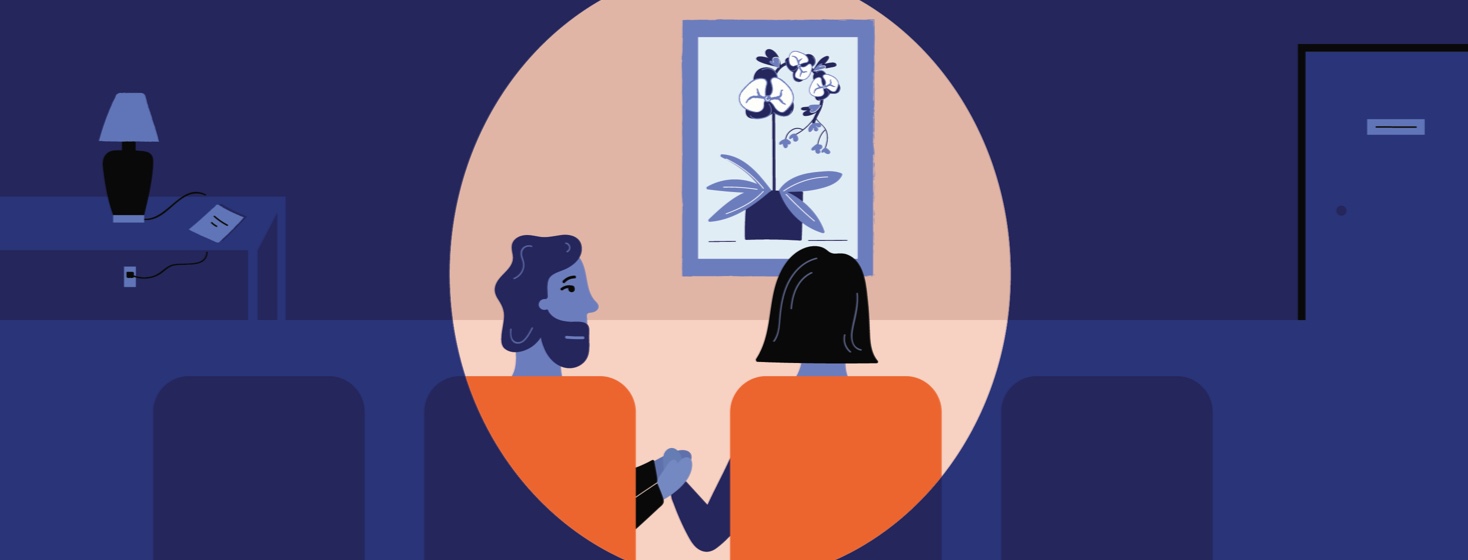How to Cope When Bad News Keeps Piling Up
When my husband, Ahmad, was diagnosed with metastatic bladder cancer, it seemed the bad news just kept coming. Every time I felt I had gained my footing, some other piece of bad news would hit us. And this happened over the course of just a few months.
The diagnosis was bad but we felt some hope
First, was the news the bladder cancer had returned. We had practically forgotten about it aside from regular surveillance. It had been early-stage, low-grade. So, to suddenly be told – two years later – that it was now metastatic (and hadn’t reappeared in the bladder so wasn’t caught sooner) was devastating.
But we were hopeful. Hopeful that they could treat and contain it. But then the oncologist told us they could treat it but it would come back. Not it “might” come back. It “would” come back. (Remember, this was 2013, before the immunotherapies and targeted therapies were an option.)
The prognosis was terrible and unhelpful but I had to know
I finally asked the difficult question – the one no one will offer an answer to unless specifically asked: how long will he likely live? And the answer was: “anywhere from 8 months to three years.” An unhelpful answer because of the wide time range but devastating regardless of which answer was closer to correct. It was a question I couldn’t not ask, despite hating the answer.
Challenges kept coming
Then he started chemo and immediately developed blood clots that required surgery and an extended ICU hospitalization. Then the chemo didn’t work and the cancer kept progressing. And he had all the negative side effects of chemo. And got none of the benefits.
What can you do?
So how do you cope when the news is like this? I didn’t cope very well. But here’s what I would do right away now. It’s all easier said than done but it’s at least a framework for thinking about how to cope.
Pause and ground yourself
Do this as often as you need to. Breathe. Be fully present in the moment: see what’s physically in front of you, smells the aromas in the air, feel your feet on the floor. One technique I like to is to describe yourself objectively in this moment: “I am a woman in a chair in a waiting room staring at a photo of an orchid.” This may sound silly but it is calming and brings you right into the moment. Your mind can’t spin when it is right in the moment.
Identify what you can control
You cannot control bladder cancer or the bad news it may bring. But you can control some things, like what you eat and how your space is organized. Seize upon these mundane but crucial activities to give you a sense of control. If you like to cook, figure out a menu plan for the week. If your favorite thing to make is reservations, make a plan for takeout or delivery for the week.
Set up a calendar for medical appointments and a whiteboard or notebook to track medications taken. This may not seem necessary but it is really helpful for when you need to report information to your doctor. You might think you can remember it but, trust me, you won’t. Consider setting up a notebook to take notes at each appointment. You, or someone who goes with you, can have a list of questions for the appointment and also take notes on key points which are also easy to forget by the time you get home.
Figure out how others can most help you emotionally, and then tell them
Your emotional state and needs will change over time. You might want someone to listen to you vent for the next two weeks. Then you might want someone who will offer encouragement and gentle positivity.
Or you might find yourself annoyed at the “be positive” mindset and want someone to acknowledge a bleak reality if that’s what you’re facing. All of these perspectives are valid as is the fact that they will change over time. Sometimes over a few hours.
Tell your support people what you need today. The ones who are able and willing to support you will give you what you need at the moment that you need it.
Acquire relevant knowledge – but only if it helps you feel empowered
Some patients and caregivers feel empowered by learning everything they can about bladder cancer. Others really don’t want to know the details but just want sound guidance from their doctor.
Figure out which kind of patient/caregiver you are and seek out sound sources of information if that feels helpful to you.
I encourage everyone to at least get a second opinion from an NCI-designated cancer center. That is a wise practice whether you want all the details or not.
Create your peaceful bubble
Find what soothes you and do it. It could be a hot bath, walking the dog, yoga, coloring, drawing, a funny movie. Whatever it is, just allow yourself to do it. Regularly. Schedule it if you must. Just like a doctor’s appointment.
Recognize that this too shall pass
Remember that it may be hard to see when you’re in the midst of it, but this too shall pass. This is a moment in time. Life will not remain static. I like the quote that things are never as good – or as bad – as we think they are.
A new moment will arrive.

Join the conversation